I wanted to quit. I’m not going to lie about it.
It was last summer, and the teeth of the North Carolina heat had sunk deeply into our training space. The humidity made it tough to get air into your body under normal circumstances, and these weren’t normal circumstances. A black belt — my instructor’s instructor — was mounted on top of me at the end of a session.
The pressure was suffocating. I couldn’t get space. Sweat had crept into every fiber of my heavy gi, and I was starting to get that dreaded claustrophobic feeling where all you want to do is something, anything that will get him off of you. You know you need to hide your arms and protect your collars, but your lower brain functions are screaming at you to buck wildly and push at his chest. Worse, in the back of your mind there’s always that little voice reminding you that you can tap, even though tapping to pressure isn’t allowed.
I managed to shut these voices up until the round ended. I don’t know how long it took. My only answer to that question is “too long.”
Jiu-jitsu is fun. This was misery. But I thanked him for it afterward, and I thank him for it now.
Why? Because training hard feels bad, but is good for you.
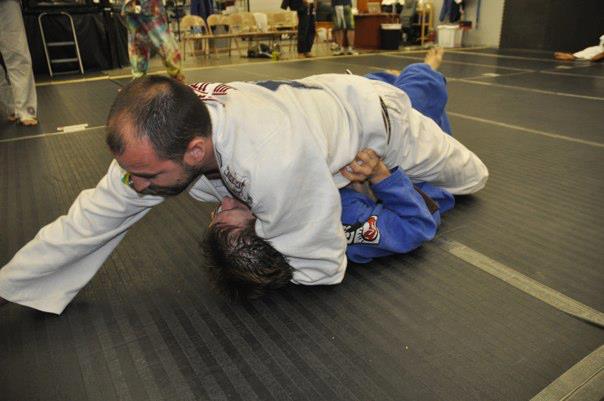
This comes to mind because of my last match in the absolute division at the Pans last week. I lost in semifinals to the eventual silver medalist, a very tough guy with a suffocating top game. He took me down straight into half guard. I found myself in a deep crossface and facing considerable downward pressure from a strong guy with good technique. He had my head turned the wrong way, making it difficult for me to bridge, and used the position to set up a tight Darce choke.
Why do I mention this? At no point did the thought of giving up cross my mind. I wasn’t thinking about anything other than getting back to a decent guard position where I could defend myself and, from there, get some attacks going.
That’s not because I wasn’t suffering: it was because I was used to suffering. Because I had trained for it. Powerful and skilled as my opponent was, he wasn’t a black belt coming after me at the end of a long, hard training day.
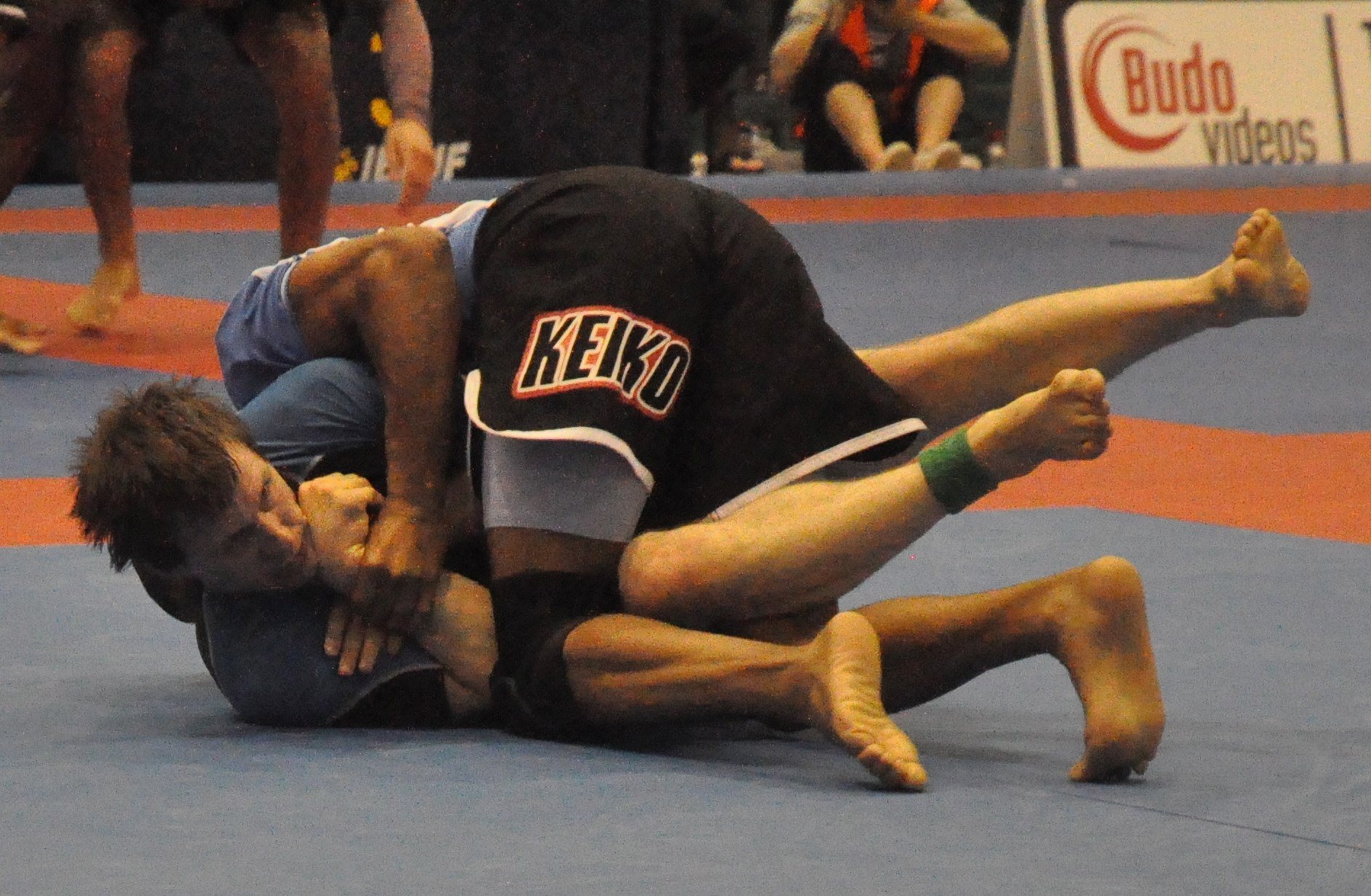
I still lost the match by points, but I survived and escaped the position. I didn’t get submitted: I recovered guard and got some attacks going. And I have no doubt that my performance was better than it would have been had I not experienced that type of hard training I just described. Training intensely prepares you for these terrible spots.
When I say “training hard,” I don’t just mean “going all-out, until exhaustion” or even “putting yourself in awful positions.” I mean challenging yourself by training with people who are appreciably better than you. Jake Whitfield, the black belt I wrote about above, can submit me more or less whenever he wants and however he wants. When he was smashing me under mount, he was teaching me to endure a terrible spot. That’s a vital lesson.
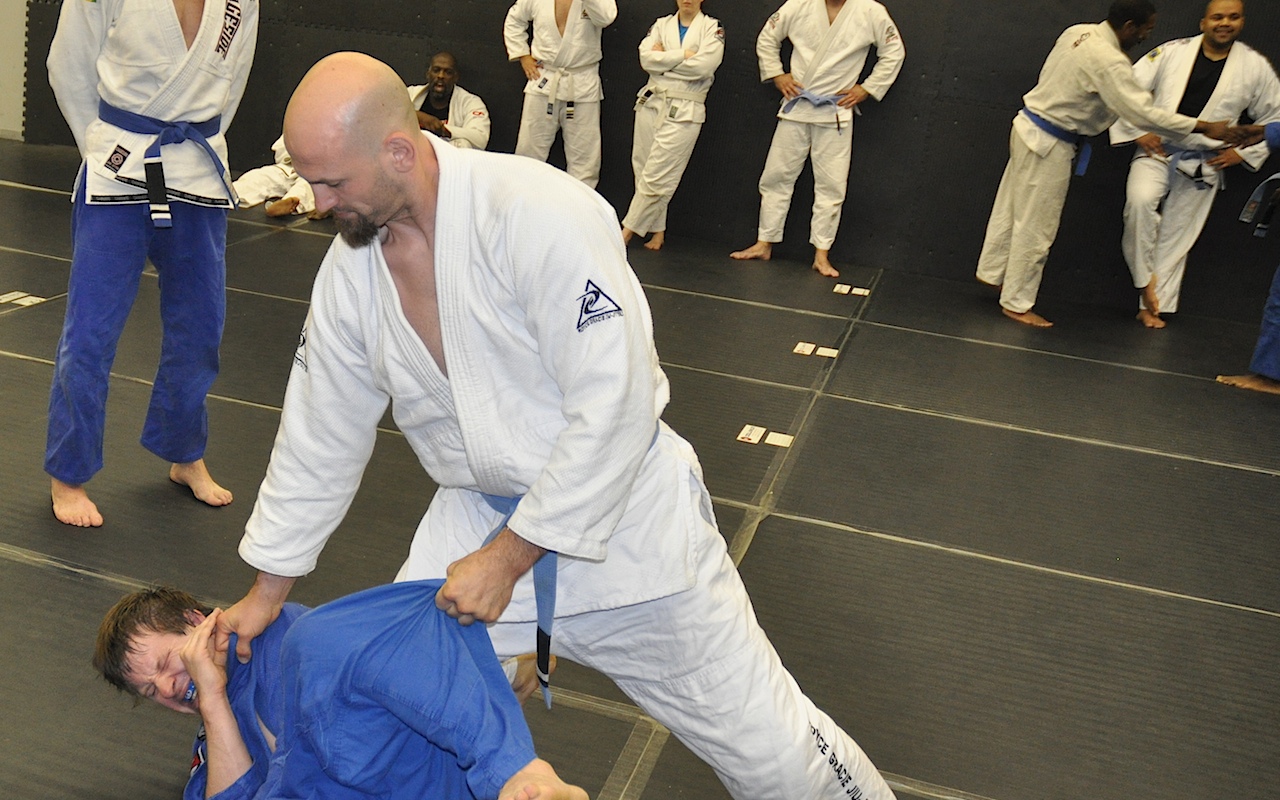
There are other lessons to be learned, though, from training with high-level guys. I just finished the Pans camp at BJJ Conquest, where I was fortunate to train with some fantastic black belts. No one there was trying to smash me in the traditional sense: guys like Kail Bosque or Super Dave Zennario don’t have to. They were able to utterly dismantle me using pure technique with minimal effort. Just getting the chance to observe jiu-jitsu players on the level of Samir Chantre, Quiexinho and Vicente Junior helped me learn. Having them effortlessly pass my guard or sweep me — essentially drilling positions on me while I was rolling — was inspiring.
These scenarios presented a different type of challenge than the situation I described earlier. Instead of just trying to survive a spot, I had to try to figure out how these guys were breaking me down so easily, and how I needed to evolve to improve. That forces you to improve your technical understanding. Whenever an upper belt asks me to roll, in my view they’re doing me a huge favor — especially a black belt. Yes, I’m going to get owned. No, I can’t prevent that. Yes, it helps me grow.
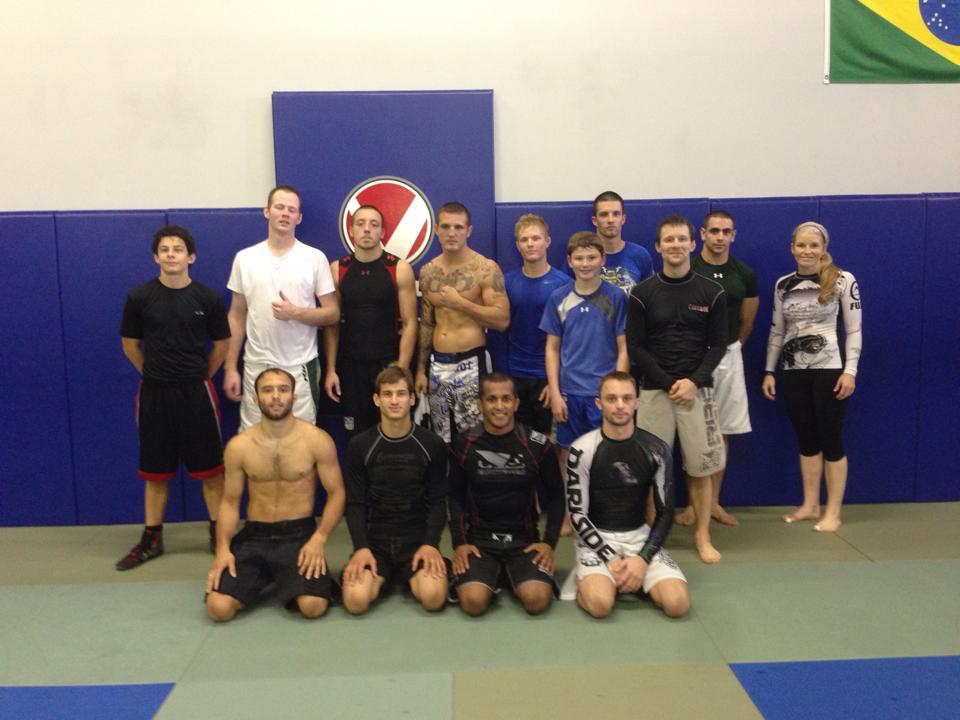
The camp was a special opportunity, of course. But there are opportunities to train hard every day, though, wherever you are. Training with people of different skill sets and body types, people who give you problems in different spots for different reasons, can present its own challenges. There are several white belts who were good wrestlers that can give me problems when they get on top: if I don’t let them get on top, how can I prepare for competitions where I will face guys with similar skills?
I just want to say one more thing. It’s easy to say this and hard to do it. It sucks to get beaten up. It can be demoralizing to “lose” constantly, even in training. That’s one reason it’s so important to control your ego and gain perspective.
The guy that regularly crushes other white belts easily in training probably feels great at the end of the night, like he could take on the world. The guy who just got eviscerated over and over and saw his partners smiling and not sweating may not even feel like he deserves the belt he’s wearing in the moment.
But who is learning more? If this pattern of training is repeated, who will be better in the long run?
Back to the story I started this with: after the round ended, I was exhausted and relieved. Jake turned to me and said this: “The fact that you didn’t freak out down there is a credit to the monsters that you train with.”
That’s the fundamental truth of it. Our teammates and training partners help us succeed, even if — especially if — they are dominating us. It feels great to win all the time, to be the best guy in the room with regularity. It’s just harder to improve if that’s all you do.
Train with monsters. Thank those monsters. Even when they’re compressing your chest, they might just be the best friends you’ll have in jiu-jitsu.
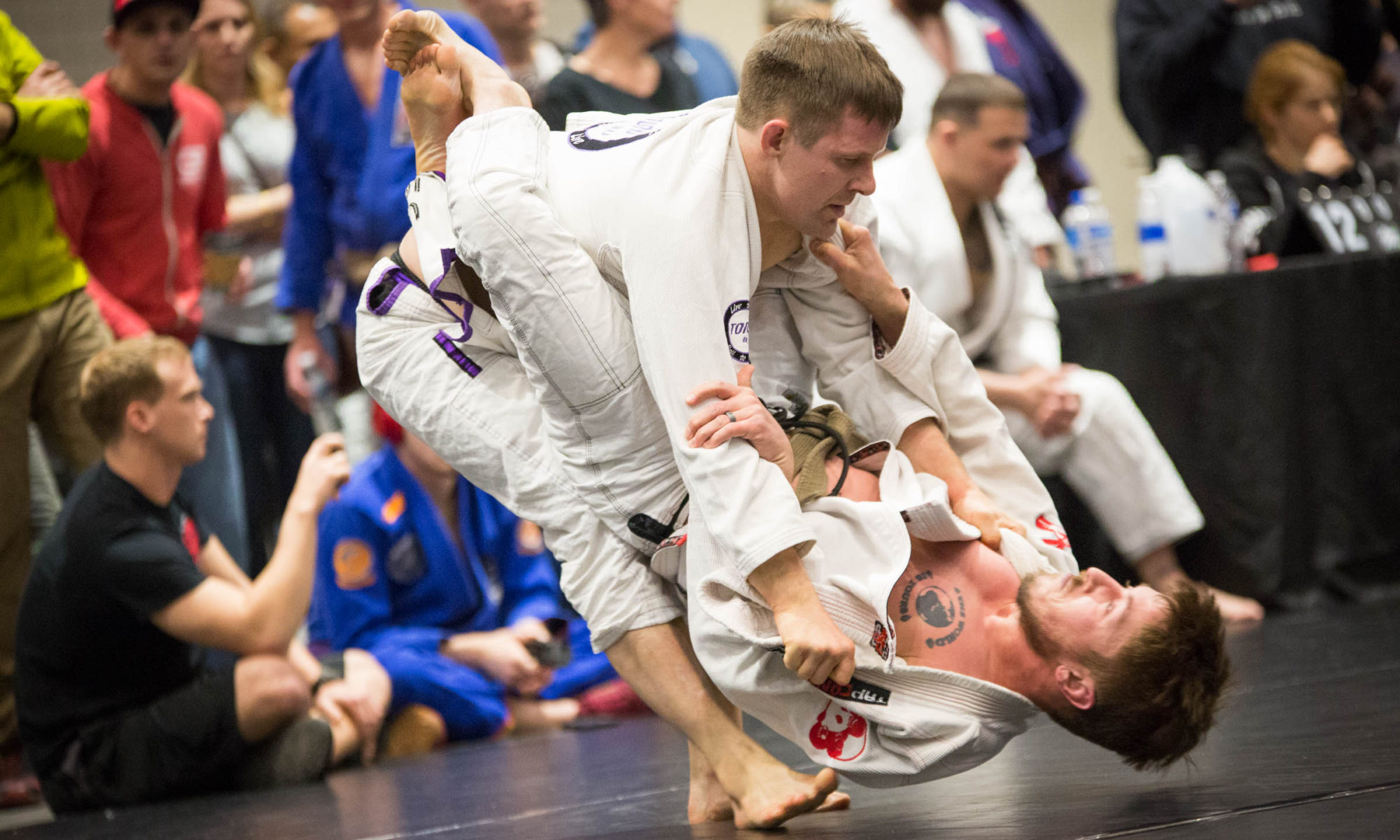
Loved it. Needed to hear it too.